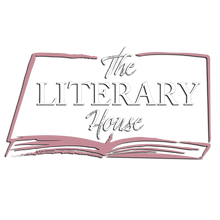AN INCLUSIVE TABLE | History matters: The other side of the story
In partnership with digital publication Mahoning Matters, The Literary House is elevating the conversation and amplifying discourse around race, diversity and inclusion in the Mahoning Valley. Follow us weekly as we boldly tackle issues head on about the greater community.
The majority of what I know about history was not found in the books I read in a formal classroom.
Instead, I learned about the wide spectrum of culture, traditions, wars and victories of the world from the tender, yet brutally honest approach of my mother who earned a bachelor’s degree in African-American studies from Youngstown State University. It instilled confidence and cultural identity that I still carry with me today.
I learned early the pros and cons of accessing a comprehensive worldview which was in sharp contrast to the lessons I’d be taught in the public school system. I faced reprimands consistently from teachers who did not necessarily agree with the cultural lens that I presented.
An example that stands out the most is in the fourth grade when my teacher initiated a lesson about Columbus discovering America. When I questioned my teacher about how a man could discover a land that was already inhabited by people, she dismissed my inquiries and described to me and my 20 classmates that they were savages.
Webster defines "savage" as "not being domesticated or under human control, and/or a beast." This is the framework created in the minds of a group of children expected to accept and trust their teacher. Luckily for me, my mother offered a safe space to discuss a 360-degree-view of history. I can only imagine how my classmates interpreted and internalized this message, particularly my peers of color.
Throughout my academic journey, I would never be formally introduced to the existence and contributions of Africans before the transatlantic slave trade. Worse, the story of the civil rights movement was rendered incomprehensible because it was filled with the tropes of biased myths portrayed in media.
Omissions of accurate records of my past would create a disconnect that I would fight against to keep my identity intact. If I based my worth and value solely on what was presented to me in public institutions, I would exist in a myriad of confusion, unclear of my role within society.
Education from my perspective seemed one-sided; full of only non-Black protagonists and their viewpoint minus the various multicultural groups I knew to be true. The stories I read reflected perspectives, accomplishments and discoveries of people who rarely shared my culture, or looked like me or my community for that matter.
Even as an adult, I can still see the misguided teachings of what my fourth-grade teacher displayed in the world today.
I am just as perplexed now as I was then at how certain groups of people are dehumanized, displaced and completely omitted from American reverence. This lack of appreciation and dismissal of the full spectrum of humanity can never unite, but only further disconnects communities.
To embrace the full experiences of everyone is to begin a true process of healing and reconciliation; to create a world where we all are seen, heard and validated authentically.
Read full article at MahoningMatters.com.

